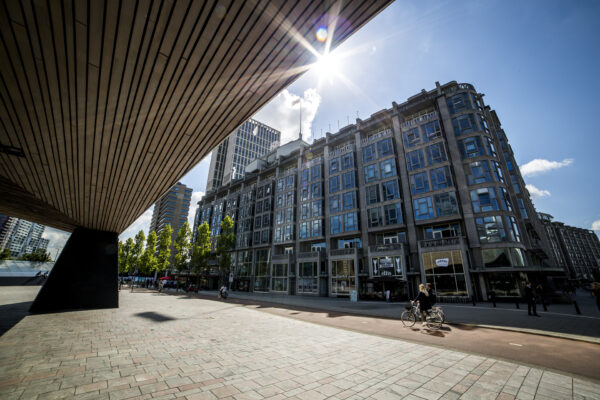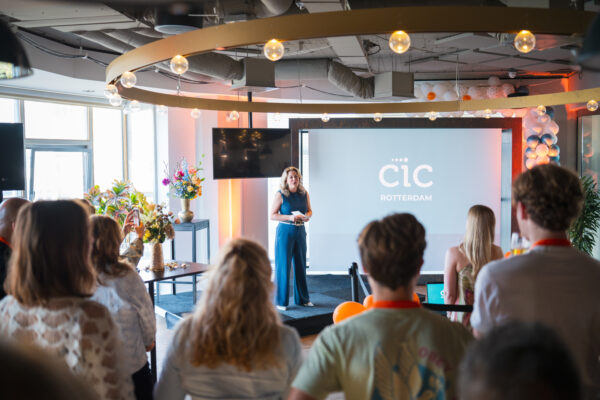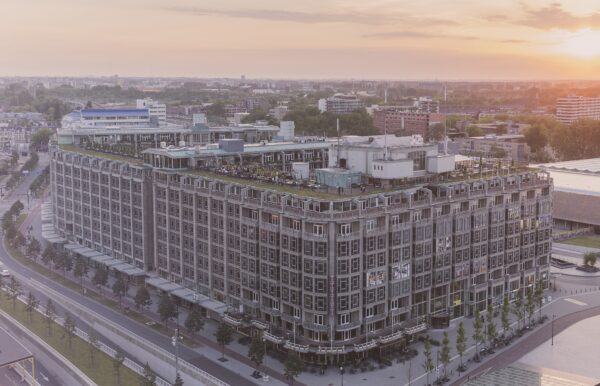“In the life sciences, collaborations are the key to furthering knowledge, developing new and better products, and getting them quickly to market,” says Cees de Wit. Collaborations, in fact, are what he believes will bring innovation in the field to the next level.
Cees and his business partner, Jasper Evers, co-founded Whale Bay & Co, a life sciences consultancy firm, about two years ago. The goal? To help innovative healthcare companies bring curing technologies closer to the patients who most need them. In doing so, the team supports companies to position their health solutions for the healthcare market, and attract the necessary partners and funding.
Two spin-offs and a support system for life science innovators
At Whale Bay & Co, a spin-off from Deloitte the Netherlands, Jasper and Cees work with a variety of life science companies across Europe and the US. Those range from established businesses that want to introduce a new medication on their market, to startups developing regenerative medicine technologies.
Regenerative medicine is, in fact, a great example, both Jasper and Cees agree. It’s an emerging field that focuses on engineering and replacing human cells and organs to restore their normal function. “What we offer to our clients in this field is a strategy: Which steps do they need to take to bring this very promising therapy to clinics, and how can they do so in a financially viable manner.”
Researching and developing such complex and innovative technologies is time- and resource-intensive, so getting sound business guidance is a real need for most of those companies.
Yet, that is not everything Whale Bay & Co has to offer.
“Over the years, we built a strong network of contacts in Europe and Boston, and Boston – let’s not forget – is the life sciences hub in the world,” Cees says. The two entrepreneurs have, thus, recently focused not only on supporting and coaching healthcare companies, but also on building a bridge between the Dutch and US healthcare and capital markets.
That is what gave the start of their second spin-off: the Holland-US Bridge program, or “HUB”, which runs between CIC Rotterdam, where Whale Bay & Co is based, and CIC Boston/Kendall Square.
A business bridge across the Atlantic
“Given the great technology that we have in the Netherlands and knowing that we, as a team, are good at strategically helping companies enter new markets, we saw the HUB program as a logical next step,” Cees says. “It’s great to have those medical devices and technologies brought to the largest healthcare market in the world.” Success in this market gives Dutch health technologies the opportunity to have global success.
The program is initially financed by the Province of South Holland, and aims to prepare businesses to enter the US market. Those eligible to participate need to have their concept already proven and be looking for a fresh round of funding to scale up. The selected companies are coached for 6-12 months, in which time they get everything ready to enter the US market – from their positioning and pricing expectations, to their pitch for VCs. The last stage is an introduction to the HUB’s network of VCs and specialized healthcare companies.
“The biggest gift we can give those companies is the access to our network of US mentors,” Jasper says. “We work with some key people in the industry, such as the heads of research and business development at large pharmaceutical companies, who are exactly the contacts you need to get traction in the US market.”
It’s not just access that you get; it’s a stamp of approval, too.
While bringing innovative Dutch companies to the US is the team’s main priority, bringing US companies to the Netherlands is a close second. After all, it’s called the Bridge program for a reason. It’s a two-way process that Jasper and Cees believe will take the work and positive impact of both Dutch and US healthcare companies to the global stage.
Photographer: Raymond de Vries photography
Copywriter: Mina Nacheva




